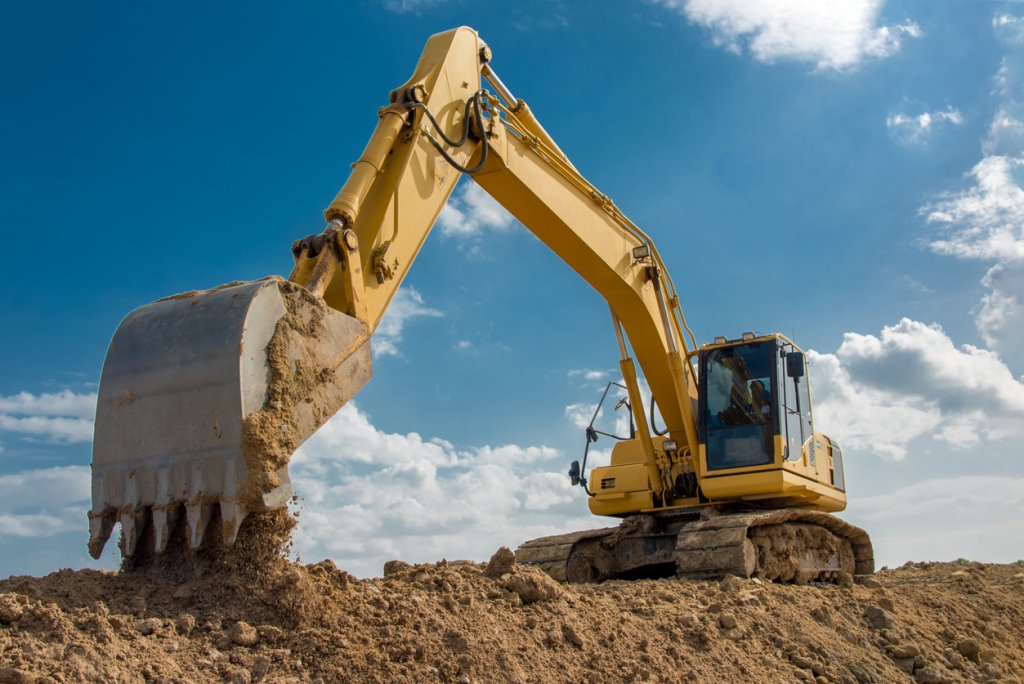Excavator Quick Coupler Device Safety Talk
Excavators are some of the most common pieces of heavy machinery found on the average construction site. Any job that requires significant digging will require an excavator.
While excavators make the lives of construction workers and excavating contractors much easier, that convenience does come with safety risks. These machines are very heavy and potentially deadly if not handled correctly.
Supervisors, foreman, and their crews must be fully aware of the dangers excavators pose—and they should understand how to avoid them.
Quick coupler devices
Quick coupler devices were designed to make life easier for construction professionals working with an excavator. These devices are designed to help workers quickly change out the tool equipped for use by the machine. However, just like the excavator itself, while quick coupler devices have made life easier, they've also created additional risks.
It is clear that quick couplers can pose a danger to ground workers who are working around the excavator. Multiple fatalities have occurred due to the unexpected release of a bucket due to the quick coupler device opening or failing.
OSHA addressed quick couplers in a special 2005 bulletin after fifteen incidents involving unexpected releases occurred in a seven-year span. While fifteen incidents were reported to OSHA, it is plausible that many more similar incidents occurred that resulted in near misses that were not reported.
Common excavator hazards
Recognizing the common hazards of working with excavators can help you avoid excavator safety incidents.
Here are some common excavator hazards:
Machine rollovers
Machine rollovers are a common excavator hazard often caused by the ground giving way beneath the machine. Unsafe operation can also cause a rollover, including driving too quickly, traveling on a too-steep slope, and traveling with the attachments improperly lowered.
Excavator rollovers can lead to serious injury and death for both the machine operator and and workers in the nearby area.
Contact with power lines
Regulations dictate that machines must stay at least 20 feet away from nearby power lines, but these guidelines are not always observed. Electrocution unfortunately kills many excavator operators, who may be operating the excavator unsafely or may have failed to check for clearance.
When a worker strikes a power line in the excavator, they get electrocuted when they touch the controls. Besides the operator, any worker who attempts to approach the electrified machine might also receive an electrical shock.
Maintenance errors
Excavators must be properly maintained to ensure the safety of the operator and the crew working around it. Even a minor issue can lead to a major incident if not repaired in a timely manner.
Frequent inspections and routine maintenance are important to maintain operational and structural integrity.
Trenching accidents
When the ground cannot support the changes in pressure caused by excavation, it will result in a trenching accident. Loose dirt may shift under the weight of the machine, leading to a rollover. Other trenching accidents are cause by improper trenching techniques or operational errors.
Improper excavator use can also lead to cave-ins and collapsed, endangering the lives of workers near them.
Workers may be at greater risk if they enter a trench while excavation is still underway.
Buckets or debris
Falling debris may injure both the excavator operator and nearby pedestrians. Material from a load could dislodge and strike workers or civilians, especially if if they are too close to the machine.
If they are not aware of their surroundings when turning or lowering the bucket arm, the operator may accidentally strike another individual with the arm or put themselves at risk by attempting to leave an active machine with the bucket arm lowered. Accidentally jostling or touching the controls can also make the arm lower unexpectedly, leading to injury.

How to avoid injury when working with a quick coupler
The best way to avoid injury when working with a quick coupler device is by staying vigilant and aware of your surroundings. When you let your guard down or attempt to cut corners, you place yourself and others in harm’s way.
Fortunately, the number of incidents involving quick coupler devices has decreased significantly in recent years. This is because manufacturers have gone out of their way to make the devices safer to use. Most manufacturers of these devices have come up with some type of locking pins that do not allow for an unexpected release. However, not all employers have switched over to the safer models of these devices and incidents can still occur if the safety devices are not installed correctly or maintained.
Some other precautions to take include:
Follow manufacturer’s recommendations for installation, maintenance, and use for quick coupler devices.
Inspect quick coupler devices before use. Look for locking pins or other safety devices that will prevent an unexpected release of a bucket or attachment. Ensure both the device as well as the safety devices are properly installed and functioning.
Never work directly under or close to an excavator bucket or attachment, even if there are safety pins in the quick coupler device. Avoiding the line of fire ensures that even if safety measures fail, no one will be in the danger zone where the bucket lands.
Communicate to fellow coworkers when quick coupler devices are used, so they are aware of the additional hazard while working around the excavator.
Summary
As is the case with any heavy machinery, working with an excavator places the user and any people in and around the work area at risk. But, by following the guidelines above, you greatly lower your chances of suffering an injury while on the jobsite.
Find and schedule topics faster
Raken's toolbox talk app makes it easy to choose from a pre-loaded library (or upload your own), then schedule and assign topics for any project. We'd love to show you how in a demo and get you started on a free trial.